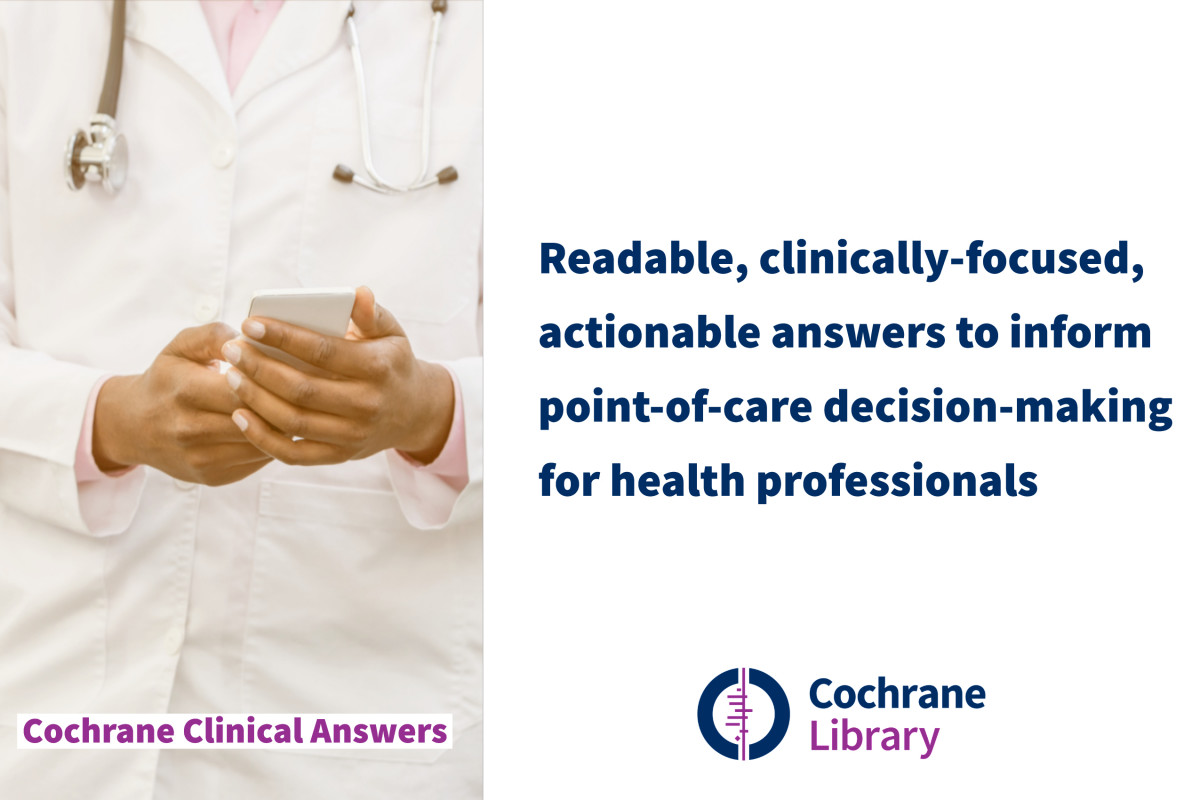
Readable, clinically-focused, actionable answers to inform point-of-care decision-making for health professionals.
Cochrane Clinical Answers (CCAs) provide a readable, digestible, clinically-focused entry point to rigorous research from Cochrane Reviews. They are designed to be actionable and to inform point-of-care decision-making. Each CCA contains a clinical question, a short answer, and data for the outcomes from the Cochrane Review deemed most relevant to practising healthcare professionals. The evidence is displayed in a user-friendly tabulated format that includes narratives, data, and links to graphics.

CCAs are available with a Cochrane subscription or national license. The following CCAs will be free until the 30 June:
- How does bupropion compare with placebo in adults with attention deficit hyperactivity disorder (ADHD)?
- What are the effects of professional, structural, and organizational interventions in primary care for reducing medication errors?
- Can diet and exercise interventions help to prevent gestational diabetes mellitus?
- How do personalized digital interventions to reduce hazardous and harmful alcohol consumption compare with no/minimal intervention in community‐dwelling populations?
The following CCAs will be free until the 31 May:
- For people with chronic obstructive pulmonary disease, what are the effects of phosphodiesterase 4 inhibitors?
- For adults with cancer, how does heparin compare with placebo or no treatment?
- What are the benefits and harms of anti‐IL‐5 therapies for adults with asthma?
- For people with asthma, how does shared decision-making affect outcomes?
Get involved: The clinical answer is written either by a practicing clinician or by a CCA Editor, with the answer being peer-reviewed by a practicing clinician. If you would like to join the Clinical Answers authoring team, please contact the team at clinicalanswers@cochrane.org. We are specifically looking for clinicians in the following areas: Respiratory medicine, Care of the elderly, Cardiovascular medicine, Pregnancy and childbirth, Neurology - especially epilepsy, Infectious disease, Paediatrics, Rheumatology, ENT, and Urology.
